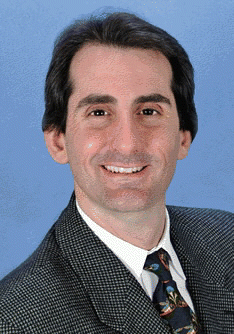 We conclude there is a significant relationship between cardiovascular status and audiometric pattern. There is a particularly strong relationship between cerebrovascular disease and low-frequency hearing loss.
We conclude there is a significant relationship between cardiovascular status and audiometric pattern. There is a particularly strong relationship between cerebrovascular disease and low-frequency hearing loss.Explore This Issue
September 2009-David R. Friedland, MD, PhD
Researchers then reviewed the medical records of the patients and performed a statistical correlation to cardiovascular disease, risk factors, events, and hearing. The average age of the patients was 67.5 years, and 669 were female.
When cardiovascular risk factors and hearing findings were correlated, it was found that the association between low-frequency hearing loss and specific cardiovascular events is quite high, Dr. Friedland said. Significant correlations were found between low-frequency hearing loss and the presence of myocardial infarction, coronary artery disease, stroke, and peripheral vascular disease. Low-frequency hearing loss was also much more prevalent in patients with hypertension, diabetes, and hyperlipidemia. The question of confirming whether audiometric patterns could predict cardiovascular status led to the second part of the study. Here, a second group of patients was studied.
We recruited individuals from medical clinics who had not had audiograms or who had not come to our clinic for the purpose of evaluating their hearing. They were interviewed and filled out a questionnaire regarding their cardiovascular history, he said. The subjects then underwent audiometric testing. A total of 90 patients were recruited, had an average age of 69 year, and 48 were female.
Developing a Formula
Researchers developed a formula from the initial cohort (which included the risk factors of smoking status, lipid levels, diabetes, hypertension, and age) to see whether cardiovascular status could be predicted as a probability. They then applied this formula to the second cohort of 90 patients and confirmed that the risk factors correlated with the presence of cardiovascular disease. They then added in the details from audiometric tests to see if the correlation with risk for cardiovascular disease was improved-and found that adding in audiometric patterns improved the specificity of the model.
We conclude there is a significant relationship between cardiovascular status and audiometric pattern. There is a particularly strong relationship between cerebrovascular disease and low-frequency hearing loss, Dr. Friedland said.
However, he noted that it is unclear whether this was a local phenomenon meaning a head event, or whether it is an indication of systemic disease. If it is an indication of systemic disease, then the ear and the brain could be two very sensitive markers of this disease. It is still not quite clear whether hearing loss, or one or more risk factors for cardiovascular disease, appears first.
Leave a Reply